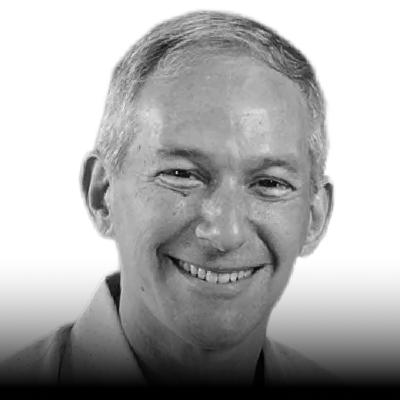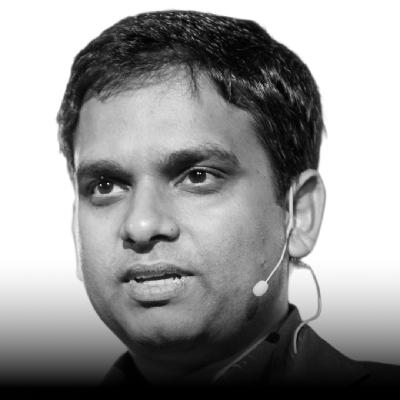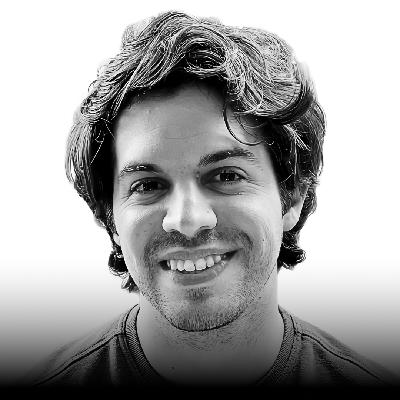Discover Infinite Loops
Infinite Loops

Infinite Loops
Author: Jim O'Shaughnessy
Subscribed: 895Played: 42,510Subscribe
Share
Description
Every Thursday, join Jim O'Shaughnessy and his favorite people as they arm you with the tools & fresh perspectives required to upgrade your HumanOS and thrive in our messy, probabilistic world.
Visit our Substack at newsletter.osv.llc for full transcripts, highlights, weekly doses of timeless wisdom, and a bounty of other goodies designed to make you go, "Hmm that's interesting!"
Visit our Substack at newsletter.osv.llc for full transcripts, highlights, weekly doses of timeless wisdom, and a bounty of other goodies designed to make you go, "Hmm that's interesting!"
305 Episodes
Reverse
Cliff Asness — co-founder, managing principal, and chief investment officer at AQR Capital Management — is one of the most influential quantitative investors of the last 30 years. He's also one of the most candid. In this conversation, Cliff joins Infinite Loops to talk about why losses hurt more than wins, how bubbles form, why modern investing increasingly resembles gambling, and what the dot-com era can teach us about today's markets. Important links: Substack: https://newsletter.osv.llc/ Cliff's Perspectives: https://www.aqr.com/Insights/Perspectives Cliff's X: https://x.com/CliffordAsness
Tomás Pueyo, the French-Spanish engineer and writer behind the successful "Uncharted Territories" Substack, joins us to dismantle the invisible forces that shape our history and future. We cover why humans are horrible at understanding exponential change, the geographical advantages of the U.S, why the Luddites might have been right, the "social media politician" of the future, why education is mostly signaling, and how air conditioning and mosquito eradication could change the destiny of nations. Important Links: Tomas's Website X / Twitter LinkedIn Substack: Uncharted Territories YouTube Channel
Annie Duke — former professional poker player, decision strategist, and bestselling author — joins us for a deep conversation about why smart people so often make bad decisions. Annie explains why misinterpretation is more dangerous than misinformation, why data is often true but misleading, and how our brains are wired for certainty in a probabilistic world. From real-world media examples to investing, health decisions, and AI-generated insights, this episode explores how explanations feel satisfying — even when they're wrong. Important links: Substack: https://newsletter.osv.llc/ Annie's website: https://www.annieduke.com/
Jimmy Soni, CEO and editor in chief of Infinite Books, is back on Infinite Loops. We discuss what's broken in traditional publishing and how we're fixing it. We also dig into Jimmy's forthcoming book on Kobe Bryant, why the world needs more "problem authors," and why our goal is to make our authors millionaires. We explore why most industries optimize for prestige instead of outcomes, how digital distribution has reshaped attention, and why authors — and creators more broadly — have more leverage than they realize. Important Links: Infinite Books: https://www.infinitebooks.com/ Jimmy's X: https://x.com/jimmyasoni Substack: https://newsletter.osv.llc/ Books Mentioned: The Founders by Jimmy Soni A Mind at Play by Jimmy Soni The Dao of Kobe by Jimmy Soni (Upcoming) What Works on Wall Street by Jim O'Shaughnessy Invest Like the Best by Jim O'Shaughnessy How to Retire Rich by Jim O'Shaughnessy The 4-Hour Workweek by Tim Ferriss The Almanac of Naval Ravikant by Eric Jorgenson (transcribed as "Naval Akan") Dispatches from Grief (Upcoming) Mamba Mentality by Kobe Bryant Slow Horses by Mick Herron The Boys in the Boat by Daniel James Brown
Happy Holidays! We're taking a short break from new episodes this week so you can focus on finishing that Christmas dinner. We'll be back next Thursday with something new. In the meantime, why not tuck into this conversation with Guy Spier from January 2024, which remains one of my favorites. Enjoy! _________________ Guy Spier runs the Aquamarine Fund, an "investment partnership closely modeled on the original Buffet Partnerships." He is also a podcast host, YouTube creator, author of The Education of a Value Investor and the host of the annual investment gathering VALUEx. He describes his life's project as "a quest for wealth, wisdom and enlightenment." Guy joins the show to discuss the differences between Switzerland and the US, how to unlock the British class system, what he learned from Warren Buffett, and MUCH more! Important Links: Guy's Website Guy's Twitter Guy's YouTube Channel 3Blue1Brown (YouTube Channel) Numberphile (YouTube Channel) Show Notes: The Differences Between New York, Switzerland & Paris Exploring the Dark Underbelly of New York Nightlife Psychedelics, Guns & Regulation The Advantages of Swiss Democracy Don't Short the United States The Branding Skill of the Royal Family Unlocking the Rules of the Class System Life Paths & Premeditation Luck, Opportunity & Non-Canonical Science Jim's Music Taste Mathematical Shenanigans Guy as Emperor of the World MORE! Books Mentioned: How to Change Your Mind: What the New Science of Psychedelics Teaches Us about Consciousness, Dying, Addiction, Depression, and Transcendence; by Michael Pollan The Hypomanic Edge: The Link Between (a Little) Craziness and (a Lot Of) Success in America; by John Gartner Write It Down, Make It Happen: Knowing What You Want and Getting It; by Henriette Anne Klauser Invest Like The Best; by Jim O'Shaughnessy Outside, the Sky is Blue: The story of a family told with searing honesty, humour and love; by Christina Patterson
What if the invention that truly made us human wasn't the wheel, language, or even agriculture — but art? In this episode of Infinite Loops, we sit down with internationally renowned artist Vik Muniz to explore a radical and deeply human idea: that art — the ability to represent the world — may be humanity's most important invention after fire. Born in São Paulo and now collected by major museums around the world, Muniz reflects on his own life journey — from growing up in a Brazilian favela to redefining what art can be — and explains why the artwork is only ever half complete. The viewer finishes it. #Art #Creativity #VicMuniz #Perception #Photography #Innovation #Documentary #Mindset #VisualArt #InfiniteLoops Important links: Substack: https://newsletter.osv.llc/ Vik's website: https://vikmuniz.net/
Artist Marc Dennis joins Jim O'Shaughnessy to explore the intersection of hyper-realism, humor, and the "meta-narrative." Marc shares his incredible non-linear journey—from accidentally starting a forest fire at age seven to becoming a tenured professor and eventually betting it all to become a full-time artist with no plan B. They discuss why the "key to failure" is trying to please everyone, how humor acts as a survival mechanism, and the crucial difference between perception and reality. Marc also offers a masterclass on intention, explaining why he plants hidden stories within his paintings and sharing the profound realization that you cannot love others until you love yourself. This conversation is a deep dive into the creative mind, offering insights on resilience, identity, and the art of betting on yourself. For the full transcript, episode takeaways, and bucketloads of other goodies designed to make you go, "Hmm, that's interesting!", check out our Substack. #Art #Creativity #Hyperrealism #Philosophy #MentalModels #Resilience #Humor #Psychology Important Links: Substack: https://newsletter.osv.llc/ Marc's Website: http://www.marcdennis.com/ Marc's Instagram: https://www.instagram.com/darcmennis/ Books mentioned: Meditations by Marcus Aurelius The Twelve Caesars by Suetonius
Professional art advisor Ariel Meyerowitz joins Jim O'Shaughnessy to demystify the complex world of art. Ariel provides an essential guide for aspiring collectors, explaining where to begin, how to develop your eye, and why buying what you love is the most important first step. They explore the inner workings of galleries, auctions, and art fairs, contrasting the emotional value of art with the often-fickle investment market. Ariel also shares her philosophy on patronage, the psychology of collecting, and the profound, stress-reducing impact of living with art. This conversation is a perfect starting point for anyone looking to break into the art world, offering a clear path from intimidation to appreciation. #Art #ArtCollecting #Investing #Culture #Creativity #MentalModels #Innovation #Design #Psychology #Philosophy Important Links: Substack: https://newsletter.osv.llc/ Ariel's Website: https://www.arielmeyerowitz.com/ Books mentioned: The Painted Word by Tom Wolfe
Adam Moskowitz is the King of Cheese—but his path to the throne was anything but straight. In this delicious episode of Infinite Loops, Adam shares his wild journey from a failed rap career and a battle with addiction to becoming one of the most influential figures in cheese and the host of A Cheese Course. Whether you are a foodie, a creator battling gatekeepers, or just someone who loves a good comeback story, this episode will remind you to bet on yourself—and maybe eat some better cheese while you're at it. I hope you enjoy the conversation as much as I did. For the full transcript, episode takeaways, and bucketloads of other goodies designed to make you go, "Hmm, that's interesting!", check out our Substack. Show Notes: The "Cheese Quake" origin story and the failed rap career Why "Creamy" is a texture, not a flavor The Artisan Cheese Illuminati Creating a documentary when gatekeepers said "No" The "Olive Garden" insult that fueled a fire Is the "Banana on the Wall" actually art? Cognitive diversity and why echo chambers kill creativity The "Time Horizon is Infinite" philosophy Leaders Lead & Lead with Love Books & Ideas Mentioned: My Dinner with Andre (Movie) Candide by Voltaire (Dr. Pangloss) Kubla Khan by Samuel Taylor Coleridge Claude Shannon (Information Theory)
From a 0.9 GPA in rural Utah to the faculty of Harvard, Todd Rose's life is a testament to the idea that the "standard path" is a myth. In this return appearance on Infinite Loops, Todd opens up about the gritty, unvarnished reality of his origin story—a journey that includes ten minimum wage jobs, a stint administering enemas for a living, and the life-changing intervention of a department secretary named Marilyn Diamond. We dive deep into the "Dark Horse" mindset and why the pursuit of fulfillment, rather than the pursuit of excellence, is actually the most reliable driver of success. We also bond over our mutual disdain for Frederick Taylor, explore the devastating impact of "average-based" thinking on human potential, and discuss why dignity is the bedrock of a free society—illustrated by a heartbreaking personal encounter with a jar of chunky peanut butter. If you've ever felt like a square peg in a round hole, or if you're looking for a roadmap to navigate the coming cultural shifts in the age of AI, this conversation is essential listening. I hope you enjoy the conversation as much as I did. For the full transcript, episode takeaways, and bucketloads of other goodies designed to make you go, "Hmm, that's interesting!", check out our Substack. Show Notes: The 0.9 GPA and the "Correct Answer Machine" Ten minimum wage jobs and the advice to "get longer gloves" Marilyn Diamond: The improbable mentor who saved Todd's education The "No Average Brain" discovery in neuroscience Why we both despise Frederick Taylor and Scientific Management Dark Horses: Ignoring the destination to find the path Degrees of Freedom: How Todd hacked the GRE The "Chunky Peanut Butter" story and the importance of dignity Resentment, trust, and the future of AI The "Rainy Day Club" and how paradigms actually shift Books Mentioned: Collective Illusions; Todd Rose The End of Average; Todd Rose Dark Horse; Todd Rose Improbable Mentors; Mike Perry The Principles of Scientific Management; Frederick Taylor The Structure of Scientific Revolutions; Thomas Kuhn The Wealth of Nations; Adam Smith Man's Search for Meaning; Viktor Frankl Dignity; Chris Arnade Capitalism, Socialism and Democracy; Joseph Schumpeter
Hello everyone, Jim here. We're taking a brief break from new episodes to spotlight a golden oldie from the Infinite Loops archive. This conversation from December 2023 remains one of my favorites. Fresh episodes return next week, but first, enjoy this conversation with the inimitable George Mack. _________________ Writer, marketer, entrepreneur, and master of mental models, George Mack returns to discuss the top 0.1% of ideas he's ever come across, from treating life as a video game to spotting high-agency individuals. Important Links: George's Twitter The Lindy Library Roy: A Life Well Lived (Rick and Morty) How to Spot High Agency People The Mack Meditation What is ignored by the media — but will be studied by historians? The Early-Late Razor Show Notes: Treating Life as a Video Game Finding the Important Metrics Embrace Momentum; Embrace Constraints How to Spot High Agency People How to Increase Your Agency The Mack Meditation & Silence as Alpha Why Pessimism vs Optimism is the Wrong Debate The Future of Media What is Ignored by the Media but will be Studied by Historians? The Reddit to Facebook Continuum George's Most Midwit Opinion Randomness & Feeding the Algorithm How to Retain Curiosity George as Emperor of the World Books Mentioned: The Hypomanic Edge: The Link Between (a Little) Craziness and (a Lot Of) Success in America; by John Gartner Happy: Why More or Less Everything is Absolutely Fine; by Derren Brown What Works on Wall Street; by Jim O'Shaughnessy The Secret; by Rhonda Byrne Gödel, Escher, Bach: an Eternal Golden Braid; by Douglas Hofstadter The Beginning of Infinity: Explanations that Transform the World; by David Deutsch
What happens when a shy farm kid from rural Wisconsin who never dreamed of being a writer becomes one of America's most beloved storytellers? Michael Perry joins Infinite Loops to share his remarkable journey from cleaning calf pens to pitching scripts at Universal Studios, all while maintaining his day job as a volunteer firefighter and EMT in his hometown. This conversation is a masterclass in authentic storytelling, practical wisdom, and the power of staying true to your roots while navigating an industry that often values credentials over character. Perry shares unforgettable stories about turning down Oprah (yes, really), why he sells hundreds of books to "people who don't read" at firefighter conventions, and how his nursing background taught him the most important skill for any writer: human assessment. We explore his philosophy of "kindness is not weakness," the difference between cash and cachet, and why sometimes the best career move is knowing when not to move at all. Whether you're a writer, entrepreneur, or simply someone who believes in the power of authentic storytelling, this episode will remind you that sometimes the best way forward is to embrace your own improbable path and never stand behind a sneezing cow. I hope you enjoy the conversation as much as I did. For the full transcript, episode takeaways, and bucketloads of other goodies designed to make you go, "Hmm, that's interesting!", check out our Substack. Important Links: Michael Perry's website Substack - Michael Perry's Voice Mail Michael's X / Twitter LinkedIn Instagram Michael Perry's Mailing List Show Notes: Connections with Mark Twain The NFL Friend & First Investment Mark Twain's European Fame & American Diplomacy Blue Collar vs. Capital 'A' Art Flying Under the Radar Midwestern Wisdom & Family Stories Charity, Humility, & Fundamentalist Upbringing The Positive Side of Imposter Syndrome Happy Tangents vs. Detailed Blueprints Publishing Industry Frustrations EMT Requires Pulse & Driver's License The Oprah Story First Mover Disadvantage Brothers, Guns, & Material Sources Mortality & Perspective The Gimlet-Eyed Drive Visiting Tom The Reality of Writing Today Pragmatism & Adaptation Voltaire & Historical Perspective Mike as Emperor of the World Books Mentioned: A Tale of Two Cities; Charles Dickens Mark Twain; Ron Chernow Improbable Mentors and Happy Tangents; Michael Perry Population: 485; Michael Perry Visiting Tom; Michael Perry Truck: A Love Story; Michael Perry Million Billion; Michael Perry 40 Acres Deep; Michael Perry Montaigne in Barn Boots; Michael Perry The Peter Principle; Laurence J. Peter What Works on Wall Street; Jim O'Shaughnessy Invest Like the Best; Jim O'Shaughnessy How to Retire Rich; Jim O'Shaughnessy Greatness Cannot Be Planned; Ken Stanley The Bible All Quiet on the Western Front; Erich Maria Remarque Tao Te Ching; Laozi Gone With the Wind; Margaret Mitchell Serpico; Peter Maas Candide; Voltaire
Ken Stanley – AI researcher and author of "Why Greatness Cannot Be Planned" – joins me to explore why ambitious objectives can blind us to the stepping stones that make breakthroughs possible. Ken is the inventor of the novelty search algorithm and co-creator of Picbreeder, a crowdsourced evolutionary art experiment that has led to important insights about our objective-obsessed culture. This conversation covers everything from why vacuum tubes had to come before computers, how the path you take to success matters more than the success itself, the "fractured entangled representation" hypothesis, why grant applications kill innovation, how education beats the playground mentality out of children, and why "interesting" is the opposite of random. I hope you enjoy the conversation as much as I did. For the full transcript, episode takeaways, and bucketloads of other goodies designed to make you go, "Hmm, that's interesting!", check out our Substack. Important Links: Personal Website X / Twitter LinkedIn Google Scholar Wikipedia Book: Why Greatness Cannot Be Planned Show Notes: Are We Deterministic Thinkers Living in a Probabilistic World? Evolving Complexity and the NEAT Algorithm The Origins of Picbreeder The Power of Novelty Search The Cultural Impact of Non-Objective Thinking Why Pursuing Interestingness is Not the Same as Being Random Mechanizing Serendipity via Stepping Stones The Allure of the Security Blanket The Omni-culture of NSF Funding What Makes an Innovator? The Fractured Entangled Representation Hypothesis What does it say about LLMs if They Are Fractured and Entangled? Path Dependency and Careers Ken as Emperor of the World Books Mentioned: Why Greatness Cannot Be Planned; by Kenneth Stanley (and Joel Lehman) The God Problem; by Howard Bloom The Lucifer Principle; by Howard Bloom Global Brain; by Howard Bloom The Beginning of Infinity; by David Deutsch Invest Like the Best; by Jim O'Shaughnessy A Mind At Play; by Jimmy Soni
Writer, editor, and founder of The Elysian, Elle Griffin joins me on Infinite Loops to discuss her vision for participatory capitalism, a world where ownership, reputation, and creativity are shared more broadly across society. We explore the evolution of capitalism from the industrial era to the networked age, how broad-based ownership could rebuild the middle class, why optimism is revolutionary, and how storytelling shapes our collective imagination. We also discuss how reputation is becoming a new form of capital and how writers can become architects of meaning in a world reshaped by AI and automation. I hope you enjoy this conversation as much as I did. For the full transcript, episode takeaways, and bucketloads of other goodies designed to make you go, "Hmm, that's interesting!," check out our Substack. Important Links: The Elysian Elle Griffin on X (Twitter) LinkedIn Website Elle's Novel Obscurity Show Notes: The New GI Bill for Stock Ownership Rethinking ESOPs, RSUs, and Equity for All The Founder's Dilemma: Risk, Ownership & Exit Tax Incentives for Employee Ownership A Tale of Two Experiments The Ownership Czar for the Day The Future of Work The State with Baby Bonds The Problem with Worth and Deserving The Power of Utopian Fiction The Currency of Belief and Reputation Empress of the World Question Books and References Mentioned: Obscurity; by Elle Griffin The Elysian; by Elle Griffin The Beginning of Infinity; by David Deutsch The Lessons of History; by Will & Ariel Durant The History of Civilization; by Will & Ariel Durant Why Greatness Can't Be Planned; by Kenneth O. Stanley Looking Backward; by Edward Bellamy Herland; by Charlotte Perkins Gilman Les Misérables; by Victor Hugo Frankenstein; by Mary Shelley The Republic; by Plato Das Kapital; by Karl Marx The Count of Monte Cristo; by Alexandre Dumas 20,000 Leagues Under the Sea; by Jules Verne A Tale of Two Cities; by Charles Dickens White Mirror Stories; by Infinite Books
What if the biggest barrier between you and your dreams isn't talent, connections, or luck— but simply the belief that you need permission to act? Jay Yang joins Infinite Loops to challenge one of the most limiting assumptions of our time: that opportunities must be handed to us rather than created by us. At just 16, Jay cold-emailed the CEO of Beehiiv with a concrete plan that led to an internship. At 17, he sent Noah Kagan a 19-page audit of his email funnel with ready-to-ship assets, ultimately becoming head of content and helping put "Million Dollar Weekend" on the New York Times bestseller list. His secret? Understanding that preparation beats bravado, that most doors don't even have locks, and that the fastest way to get what you want is to do the work upfront and make saying "yes" a no-brainer for others. This conversation dives deep into Jay's philosophy of permissionless action, exploring why most people accept the "standard pace" when there's actually no speed limit, how to reprogram limiting beliefs through small wins, and why high agency people focus on outputs while low agency people get trapped tracking inputs. I hope you enjoy the conversation as much as I did. For the full transcript, episode takeaways, and bucketloads of other goodies designed to make you go, "Hmm, that's interesting!", check out our Substack. Important Links: Jay Yang's website Jay Yang's X Jay Yang's Instagram Jay Yang's Book, You Can Just Do Things Jay Yang's LinkedIn Show Notes: The Philosophy of Permissionless Action Breaking Free from Era-Defining Ideas Overcoming Limiting Beliefs Starting Small: Building Confidence Through Micro-Actions Inner vs. Outer Orientation Inputs vs. Outputs: The Agency Divide Failure as Feedback The Power of Persistence Curiosity and Cognitive Diversity AI and the Future of Work The Busy-ness Trap Signal vs. Noise in the AI Era People You Learn From Don't Have Huge Following The TAG Method Explained The New Way of Hiring Learning from the Greats Motivation vs. Clarity Jay's North Star and Anti-Goals Viktor Frankl and Finding Your Why Working in Public The Second Book Preview The Emperor Question Closing & Contact Information Books Mentioned: You Can Just Do Things: The Power of Permissionless Actions (Jay Yang) Million Dollar Weekend by Noah Kagan The Tao of Kobe (forthcoming 2026, Jimmy Soni) Greatness Cannot Be Planned (Ken Stanley) Man's Search for Meaning (Viktor Frankl)
Jeff Bussgang — entrepreneur, venture capitalist, Harvard Business School professor, and co-founder of Flybridge Capital — joins Infinite Loops to explore how AI is transforming the operating systems of startups. We dive into Jeff's framework from his new book The Experimentation Machine, why AI compresses the cost and time of learning, how to distinguish 10X founders and 10X joiners, and why execution velocity matters more than tech moats in the age of AI. One of the most important things Jeff and I discuss is why discernment and taste may be the most valuable human skills of the future. I hope you enjoy this conversation as much as I did. For the full transcript, episode takeaways, and bucketloads of other goodies designed to make you go, "Hmm, that's interesting!," check out our Substack. Important Links: Flybridge Jeff's Wikipedia Profile Jeff's Website Jeff on LinkedIn Jeff's Twitter Show Notes: AI and the Rise of the 10X Founder The HUNCH Framework for Product-Market Fit Hair-on-Fire Value Props vs. Vanity Metrics Head in the Clouds, Feet on the Ground The Kill Criteria The 3Ts That VCs Look For Creating Win-Win Outcomes: MongoDB What Makes a 10X Founder The Human Edge in the Age of AI Everybody is in Sales Who is a 10X Joiner? Emperor of the World: Jeff's Two Rules for Humanity
Dan Wang, author of "Breakneck: China's Quest to Engineer the Future," joins me to explore why China builds while America blocks, how lawyers strangled U.S. infrastructure, and why Connecticut trains run slower than they did in 1914. Dan lived through China's trade war, Zero COVID, and the exodus of 15,000+ Chinese millionaires, giving him unique insight into both superpowers' pathologies. This conversation covers everything from why ribbon-cutting ceremonies matter for societal optimism to how lawyers morphed from deal-makers to obstructionists after the 1960s. We explore California's high-speed rail fiasco, the rebellion against NIMBYism, and Dan's prescription: America needs 20% more engineering, China needs 50% more lawyerly protections. Plus we discuss cognitive diversity, the Death Star versus the Rebel Alliance, and why we need synthesis. I hope you enjoy the conversation as much as I did. For the full transcript, episode takeaways, and bucketloads of other goodies designed to make you go, "Hmm, that's interesting!", check out our Substack. Important Links: Personal Website X / Twitter LinkedIn Profile at the Hoover Institution Show Notes: The Engineering State vs. the Lawyerly Society America's Lost Building Culture China's Gilded Age & America's Progressive Era Solutions for America's Building Crisis An Oncoming Battle of Elites Becoming Pro Development A Vision for a New Housing Fund China's Challenges Who Has a Better Shot At Change? Rickover: The Grand American Builder Dan's Uncertain Forecast of China Looking Ahead to 2035 Dan As Emperor of the World
It's Alex Danco's landmark 10th appearance on Infinite Loops! He joins the show to discuss his move from Shopify to a16z (where he'll be building out their editorial operations), the power dynamics between VCs and founders (the kings and priests of our era), communication theory and the power of speechwriting, Reagan's rhetorical genius, authentic weirdos, America's hypomanic DNA, the unexpected similarities between American and Chinese culture, and why listeners who haven't read any recommended books after 10 episodes are wasting their time. I hope you enjoy the conversation as much as I did. For the full transcript, episode takeaways, and bucketloads of other goodies designed to make you go, "Hmm, that's interesting!", check out our Substack. Important Links: Website Twitter Newsletter Show Notes: Alex's New Gig A Civil War Between Elites The Citizen Kane Test for CEOs Communication is the Founder's Job VCs as Legitimacy Banks & Magic-Makers The Lost Art of Speechwriting Reagan's Genius & The American Dream The Hypomanic Edge Mystery, Respect, and Cultural Power Marketing Ideas to the Right Audience The New Internet Economy Maritime Laws for AI Agents The Goth Index and Authenticity Substack's Identity Crisis & The Role of Podcasts Alex as Emperor of the World (Again) Books Mentioned: What Works on Wall Street; by Jim O'Shaughnessy How Music Works; by David Byrne Breakneck: China's Quest to Engineer the Future; by Dan Wang The Hypomanic Edge: The Link Between (A Little) Craziness and (A Lot of) Success in America; John D. Gartner The Language of Magic; by Toby Chapel Underwriters of the United States: How Insurance Shaped the American Founding; by Hannah Farber
Sangeet Paul Choudary, bestselling author of Platform Revolution and Reshuffle, and senior fellow at UC Berkeley, joins the show to challenge the conventional wisdom about AI's impact on our economy. We explore why knowledge workers risk falling "below the algorithm," how curiosity and judgment become luxury goods in a world of cheap answers, and why our educational and career structures need complete reinvention rather than incremental reform. I hope you enjoy the conversation as much as I did. For the full transcript, episode takeaways, and bucketloads of other goodies designed to make you go, "Hmm, that's interesting!", check out our Substack. Important Links: Reshuffle: Who Wins When AI Restacks the Knowledge Economy (Amazon) Website Twitter Substack LinkedIn Show Notes: Sangeet's Core Thesis Technology's Second Order Effects Coordination Without Consensus Resistance to Innovation The Bottlenecks of Changing Systems Staying Above The Algorithm An Impending Cognitive Chasm The Limitations of Reskilling Redesigning Hiring for the AI Era The Human Touch Fallacy The End of Linear Career Paths Collective Sense-making in Uncertainty Sangeet as Emperor of the Day Books Mentioned: Platform Revolution; by Geoffrey G Parker, Marshall W Van Alstyne, Sangeet Paul Choudary Reshuffle; by Sangeet Paul Choudary The Hound of the Baskervilles; by Arthur Conan Doyle Why Greatness Cannot Be Planned; by Kenneth Stanley and Joel Lehman
Michael Dean — architect-turned-writer, O'Shaughnessy Fellow, and creator of Essay Architecture — joins the show to explore the hidden structures beneath nonfiction and why essays, like buildings, can be designed with patterns rather than left to inspiration. We discuss the origins of Essay Architecture, Michael's 27-pattern framework that maps essays across Idea, Form, and Voice, and how to make craft teachable and AI feedback useful without replacing the writer. Along the way, we dive into architecture school critiques, why publishable doesn't mean perfect, how editing rewires thinking, and the cultural risks if we keep treating writing as vibes instead of patterns. I hope you enjoy the conversation as much as I did. For the full transcript, episode takeaways, and bucketloads of other goodies designed to make you go, "Hmm, that's interesting!", check out our Substack. Important Links: Michael's Website Substack X/Twitter Profile Show Notes: The Architecture of Essays: from Design School to Writing Frameworks The Pattern Language: Idea, Form, and Voice Local Nuance vs Global Stylekits Fundamentals before Breaking Rules: Joyce, Picasso, the Beatles Quality Without a Name Leveling the College Playing Field The Two Sandboxes of Fundamentals and Amplification Gamification, Play and Motivation Beyond the Five-paragraph Essay: Emerson and AI in Education Scoring Great Essays: Why David Foster Wallace takes Three Top Spots How Writing Colonized the brain Editing as Belief-rewiring: Why Writers Avoid It and Why Math Helps The King of Biases: Confirmation Bias Michael as Emperor of the World Books Mentioned: Works on Wall Street; Jim O'Shaughnessy Essay Architecture (in progress) ; by Michael Dean A Pattern Language; by Christopher Alexander The Best American Essays 2024 Anthology; by Wesley Morris and Kim Dana Kupperman Consider the Lobster; by David Foster Wallace The White Album; by Joan Didion Shooting an Elephant; by George Orwell Portrait of an Artist as a Young Man; by James Joyce Finnegan's Wake; by James Joyce Towards a Golden Age; Paul Graham The Limits of Scientific Reasoning; by David Faust The WEIRDest People in the World; by Joseph Henrich

























Hey there! is there a transcript of this?